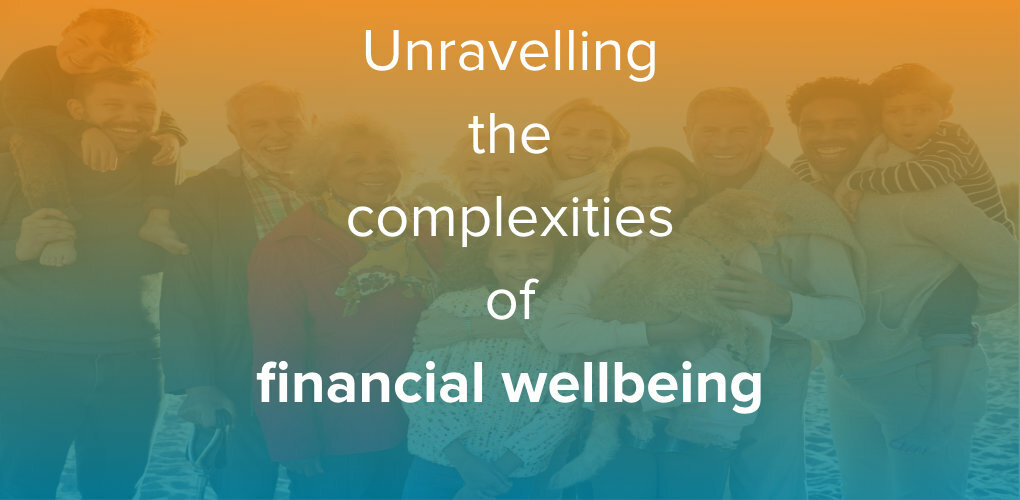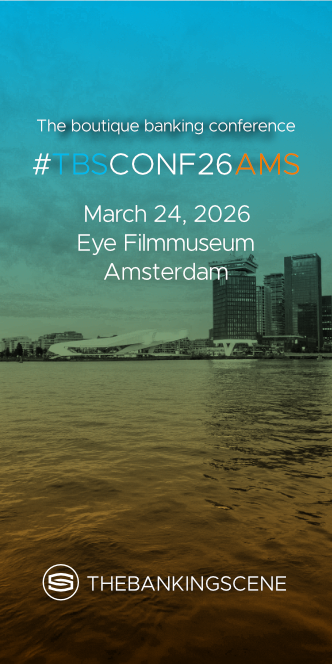
Insights & Opinions
Unravelling the complexities of financial wellbeing
Tue, 22 Jun 2021


Augeas, the mythical king of Elis back in ancient Greek times, had an enormous stable with 3,000 cows that wasn’t cleaned for 30 years. For the Fifth Labour, Eurystheus ordered Heracles (Hercules) to clean up this stable in a single day, which meant that he needed to be creative. So he changed the rule of the game: instead of cleaning the stable, he rerouted the nearby river to wash out the filth.
Financial wellbeing is about precisely that.
Precise categorisation of expenses, a discount here and there, or a bunch of loyalty programs doesn’t improve most people’s financial wellbeing. Instead, better financial wellbeing starts with changing financial behaviour and cleaning up the mess that has grown over the years into something unmanageable.
To give you an idea: in 2020, 14,1% of the Belgian population was considered at risk of monetary poverty. These people survive with an income of €1.284 or less per month for a single person (the numbers are pre-COVID-19).
Financial wellbeing is about precisely that too.
Augias (dutch for Augeas) is also the PSD2-licensed company of Frédéric Vandenhende, one of our guests in a session where we unravelled financial wellbeing. Their pitch is “to change your personal finance administration and make it straightforward for you by cleaning up the mess and optimising your own financial wellbeing with insights and possibilities to improve your financial situation.” ROOV is the commercial brand of this fintech company.
Our second guest was Len Collier, Innovation Lead at Argenta. He assisted in a couple of workshops within Argenta to understand better what financial wellbeing means and Argenta can improve the wellbeing of their customers.
The layers of financial wellbeing
Financial wellbeing is a combination of multiple components, according to Len, different layers, that all together form a complete picture of financial wellbeing. The first stage is financial awareness: how well aware are you as a consumer of your financial situation? To a further extent: how this financial situation compared to other people?
As you get more aware of your personal situation, you start looking for possible improvements. This brings us to stage two: financial knowledge. You may need more information or advice to improve your financial situation. A better understanding of the broader context and more financial education will reduce your personal uncertainty, which will benefit your level of financial stress.
Stage three, according to Len, is financial behaviour. After all: once you know your personal situation, you grew your financial knowledge, you can start investigating how a change in your financial behaviour can improve your financial wellbeing.
Stage three is linked to stage four: one’s emotions in the context of money and financial management. Once people start to investigate how to change their behaviour, they will quickly be confronted with emotional blockers, habits and emotions tied to money management.
Financial wellness is not financial wellbeing
“I would see financial wellness as a practice and financial wellbeing as a state”, summarised Erin Taylor in the chat, and this aligns perfectly with the definitions I use to explain the difference.
I always financial wellness as: “how you effectively manage your economic life, getting your income and expenses in balance.”
Financial wellbeing, on the other hand, refers to “a state of being wherein a person can fully meet current and ongoing obligations, financial wellness aspect, can feel secure in their financial future, and can make choices to allow enjoyment in life. It’s a highly personal state, not fully described by objective financial measures.”
Looking back at Len’s different stages of financial wellbeing, you see that they all come back, with every stage adding complexity for banks to influence their customer’s wellbeing, whether that is because of technological constraints or psychological ones.
A fintech or a bank’s challenge to become a partner in life
Financial education
Bottleneck n°1 for many people to improve their financial situation is financial education. ROOV researched this recently in Belgium and found that 40% of the people surveyed insufficiently understood the basics like inflation, the meaning and the interest rates on a savings account.
80% below 28 years old stated that they were unhappy with the financial education they got at school. Of people above 35 years old, 60% believed their financial knowledge is sufficient.
Frédéric shared another striking conclusion: “Younger people are saying we don’t know enough but are doing it better than older people, who told us to know enough but perform a lot less.”
Luckily today, financial education is getting more attention. The industry is creatively looking for new ways to reach consumers. Technology is making financial education fun through gamification, and business games at schools help children from a young age how to manage their finances or how a bank works.
Trust
Most people trust banks with their money, often more than they trust a young fintech to take that role. But do they trust the bank with all their secrets required to make this bank understand which shifts to stimulate in the customer’s financial behaviour?
Len highlighted the importance of proximity and the role of the financial advisor in this respect. Technology cannot solve this alone. We need a human connection in the equation.
Len: “I'm not saying that financial advisors should be psychologists. Still, I think the emotional and human connection could help there to give you more certainty about someone's future. After all, part of the financial wellbeing is also how do you look towards your future."
Technology
Len is convinced that technology is a tremendous enabler for financial wellness solutions, financial education or financial awareness. However, it remains underdeveloped today to deal with the individual, highly contextual emotional aspects of financial wellbeing.
Len: "The more you evolve to managing someone's financial wellbeing, the more detail you need to have about a person's life, so more general rules become very difficult to apply for one's particular situation". You need to bring it to a level of granularity that today is hard or even impossible to achieve with AI.
There are exceptional companies that test the limits of technology, though.
Someone shared the example of Tinkoff, the Russian challenger that is transforming into a super-app. They developed solutions to make financial education appealing to different generations, and gamification helps them grow their client’s financial knowledge, save money and build wealth.
Discovery Bank is another example. This South African spin-off of Discovery insurance group built a model that promotes better financial behaviour with beneficiary savings rates etc.… Their data capabilities reach far beyond that of a traditional bank, and through gamification, they continuously stimulate suggestions to change the customer's behaviour. If it results in a healthy life, the customer gets better ratings and other advantages. You can read more about them here.
Although this approach may be borderline legal in Europe, it demonstrates the huge potential for banks and fintechs in the coming years to improve the lives of their customers.
Can banks become health companies by improving financial wellbeing?
In 2019, we discussed "By Improving Financial Wellbeing, Banks Become Health Companies", explaining that improving someone's financial wellbeing will reduce (financial) stress and make a person more resilient and even less vulnerable to physical discomfort.
We concluded back then: "Fintech and banks should work together in partnership for a brighter future, for a financially healthier society. Don't forget: by improving your customer's wellbeing, you are not just a financial doctor. You are also the 'apple that keeps the doctor away'."
Frédéric shared a similar message: "10-20 years ago, the only thing that banks did was giving money. Educating people was not their concern. Today we witness a change of mentality of the banks. They want to build up a long-term partner relationship with their clients and keep them as long as possible.
To do that, they have to give extra information to you to perform better, and they have to work with fintech companies. Fintech is a fantastic evolution, and I firmly believe this is only the beginning."
Banks that wish to become the financial doctors of their customers will need to bring proactivity to another level, ensuring that they can tackle problems before they occur. Clients who understand the bank's positive impact on their lives will make them better clients and more loyal in the long term.
Conclusion
Context is so incredibly important.
Financial wellbeing is a very broad topic, and the conversation would be completely different if we focused on one segment, whether that is rich or poor, old or young, male or female. Every segment has its own challenges.
For the industry to lift society's financial wellbeing, we will need to look for ways to change the rules of the game, like Heracles did to clean the stable thousands of years ago.


